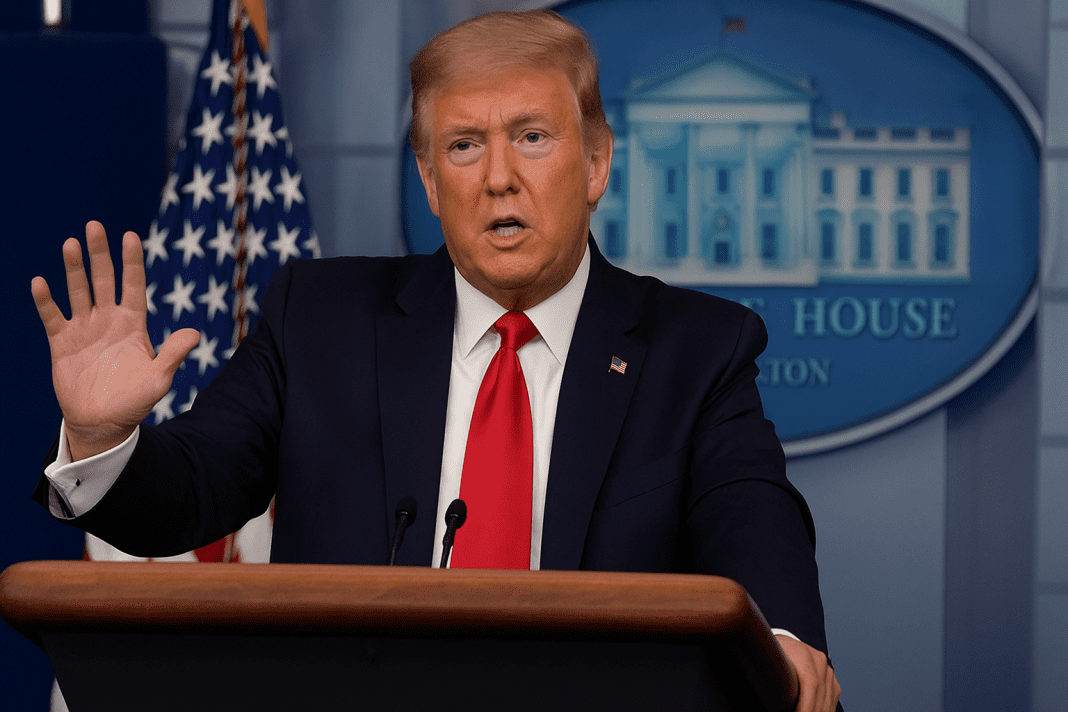The White House confirmed on Monday, September 22, 2025, that U.S. President Donald Trump strongly opposes the decision by several Western nations to move forward with Palestinian recognition. The announcement came from White House Press Secretary Karoline Leavitt during a press briefing in Washington, D.C.
U.S. stance on Palestinian recognition and Gaza conflict
According to Leavitt, the president views Palestinian recognition as an unhelpful step in the ongoing conflict in Gaza. She explained that Trump believes this move does nothing to free hostages currently held by Hamas and does not bring the war any closer to an end. Instead, the president considers such recognition as giving a reward to Hamas, the group widely seen as central in the fighting.
Leavitt emphasized that the president will expand on his stance in his upcoming address to the United Nations General Assembly. She noted that Trump views the push for Palestinian recognition by some European governments as “more talk and not enough action from some of our friends and allies.”
🇮🇹 Meloni defies France’s push for Palestine recognition — Italy doubles down on Gaza aid
The remarks highlight the U.S. administration’s focus on immediate security priorities. Trump has consistently framed his approach to the crisis as centered on freeing hostages and ending violence rather than engaging in broader debates about diplomatic recognition. According to Leavitt, the president’s view is that without addressing the hostage issue and violence directly, symbolic acts like Palestinian recognition only complicate the path to stability.
The White House comments came as the conflict in Gaza continues to reverberate across the world. Nations in Europe and the Middle East remain divided on whether recognizing a Palestinian state at this stage helps or harms the peace process. For Trump, the position remains clear: any move toward Palestinian recognition before addressing security concerns amounts to misplaced priorities.
Farmers’ anxiety as trade talks continue with China
While questions about Gaza dominated headlines, domestic concerns also featured prominently during the White House briefing. Reporters pressed the administration on falling crop prices and the anxiety of American farmers as trade talks with China remain unresolved.
Leavitt acknowledged the unease within farming communities, noting that the administration is “completely aware” of their concerns. She said that many meetings have taken place with the National Economic Council, Secretary of Agriculture Brooke Rollins, and the broader trade team to address the issue.
US sanctions Palestinian rights groups over ICC war crimes case against Israel
According to Leavitt, the problem of declining crop prices has been central in discussions with Beijing. However, she did not announce any new measures of relief or financial support. Instead, she repeated that the administration is weighing its options while continuing trade negotiations.
The trade talks with China have had a direct impact on U.S. agriculture. Farmers across the Midwest and other key farming regions depend heavily on exports to Chinese markets. With no finalized trade deal in place, crop prices have faced downward pressure, adding to farmers’ worries.
Leavitt’s acknowledgment of these concerns reflects the political weight carried by America’s agricultural sector. Farm states have often been seen as crucial to national economic stability, and their unease is being closely monitored in Washington. The unresolved negotiations with Beijing continue to affect not just farmers but also broader trade relationships and commodity markets.
Nuclear treaty, Venezuela tensions, and Palestinian recognition debate
The White House briefing also covered additional global issues. One question centered on Russian President Vladimir Putin’s proposal to extend the latest nuclear arms treaty by one year. Leavitt confirmed that Trump is aware of the offer, describing it as sounding “pretty good.” However, she declined to go further, saying only the president would provide final comment on the matter.
Attention then turned to Venezuela, where reporters asked about a recent letter from Venezuelan leader Nicolás Maduro to President Trump. Leavitt dismissed the letter, stating it contained “a lot of lies.” She reiterated that the U.S. continues to view Maduro’s regime as illegitimate and linked to drug trafficking.
In the wider briefing, Trump’s position on Palestinian recognition remained a dominant theme. The rejection of recognition by Western nations reflects a consistent U.S. stance on Middle East affairs. Leavitt repeated that the administration does not see symbolic recognition moves as productive, especially while hostages remain in captivity and violence in Gaza continues.
U.S. immigration judge orders pro-Palestinian activist Mahmoud Khalil deported to Algeria or Syria
By rejecting Palestinian recognition, the administration made clear that its focus lies on immediate outcomes tied to security and hostage release. At the same time, domestic pressures over China trade negotiations and global security debates involving Russia and Venezuela highlight the wide range of challenges facing the administration.
The White House press conference revealed the complexity of managing issues that span across foreign policy, global security, and domestic economics. While the debates over Palestinian recognition dominate discussions abroad, the concerns of American farmers and broader trade tensions with China remain pressing at home.

